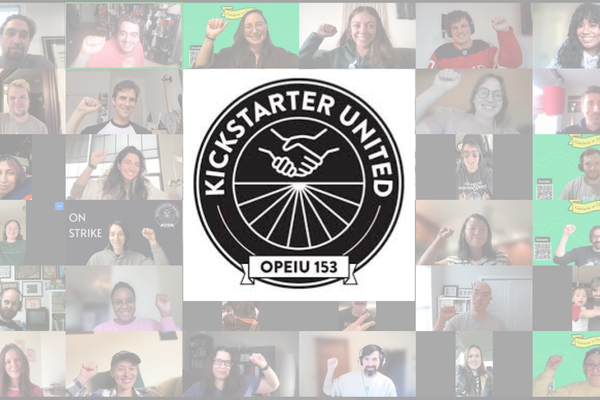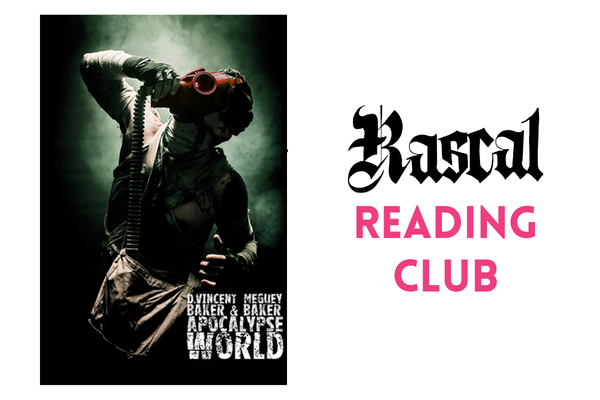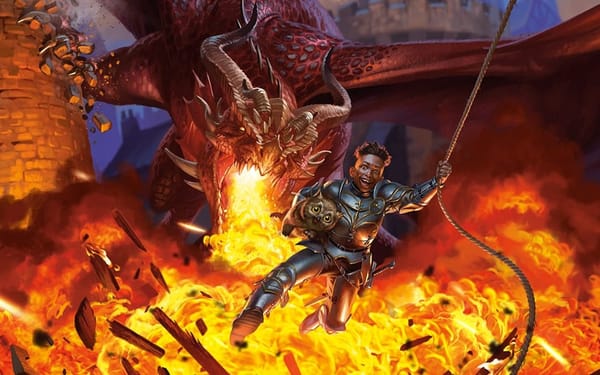Bring out your soapboxes
Allegedly playing elfgames.

Hear that? It's the sound of well-ground axes. Of longstanding grudges. Thomas watches Chase remount a vertiably parade well-trod soapboxes on Episode 26 of the Rascal Radio Hour. These include the transient nature of Discord, crowdfunding platforms, and valorizing dungeon mastery as work done in the service of play. Chase tries to keep the griping to a minimum because we've got a Kickstarter union win and Satanic Panics to discuss.
Mostly the pair dive into the fascinating and lovely emergent culture inside Over/Under, Chase's thoughts about RPGs and comics mixing at the recent Thought Bubble convention, and Adam Serwer's recent Atlantic article about Musk and Co. wanting to reclaim D&D from The Woke. Afterwards, it's a cavalcade of game recommendations and advice on approaching design from the outside as the duo land on an exoplanet called Question_Dungeon and explore its rugged expanses.
Good luck to everyone flying for PAX Unplugged and/or the impending US holidays! An end to the government shutdown has not really helped that situation much.
You can find Rascal Radio Hour on Apple, Spotify, and all the other various podcatchers. Leaving a five-star review helps new listeners find our show and website. Since we eschew traditional advertising, these reviews and any word-of-mouth are genuinely a massive help — thank you!
[Edit November 24, 9:39 am EST: Chase here, wanting to add a link to Valeria Love's article on Over/Under, which I mentioned on the podcast but couldn't place at the time. Enjoy!]
Here's an excerpt:
Thomas: We had our first piece about Over/Under, and there are more coming. Lin was one of the faction leaders who were personally recruited by Sam Sorensen and Sean McCoy to play the wargame sort side of Over/Under. For those who haven't heard about it, it is like both a megagame and wargame where a few people were playing these factions against each other with certain goals and win conditions. And then, there were 500 to 1000 people who were just members of those factions.
They had really no rules about what they were doing, and that was and that sort of like led to this efflorescence, like blossoming of people doing self-directed roleplay, freeform, making their own fun. And it seems to have really caught people's attention. This experience of being in the same world as 500 people, all doing things, not knowing 75% of what's going on because you can only participate with what you physically see in this Discord server. Most of it's invisible to you because it's all happening in other threads that you don't have access to. So yeah, it's an interesting thing.
Chase: And then, if you were not part of the game, but you are even semi-tapped into the tabletop industry side of social media, you were seeing brief emanations escape the Discord server in the form of shitposts — mostly about the things that were going on inside. The bosses or characters would reference the most buckwild events that might've happened. A big part of the article that Lin wrote, which was about the ending of the game, was this sort of like winding up, shuttering, and then unfurling of the curtain so that people could be like, shit, that was you the whole time?
One of the things that I think really is different about a megagame like Over/Under versus some other megagames that you can play at conventions is that it existed as the event happening in the Discord server, but it also existed as the thing happening publicly that we could only access very brief windows inside. You had to fill in the gaps on what was going on. I marvel at the amount of collaboration and orientation that this probably took to make happen on a Discord server. The stress of it boggles my mind.
Thomas: Yeah, I think all the organizers were not prepared for this. It's a success despite the fact that I think they had literally no control over what was happening. Sam must have basically done a full-time's job worth of work on this. It's one of those things where part of the magic is the sheer scale of it, right? The fact that Mothership and Sean McCoy have this pull and can generate enough excitement and attention that they can get 500 to 1000 people into this server and into this idea of making very little promises for what they can do.
One of the things that happened because of miscommunication between the bosses and the organizers is that some of the bosses were not really doing the wargame in the way that Sorensen might have assumed. They thought their job was to facilitate the game for the participants, find ways for them to have fun, give them something to do, entertain them to some extent. Magic will emerge if you can get that sort of that kind of critical mass. And it's been really cool to see.





